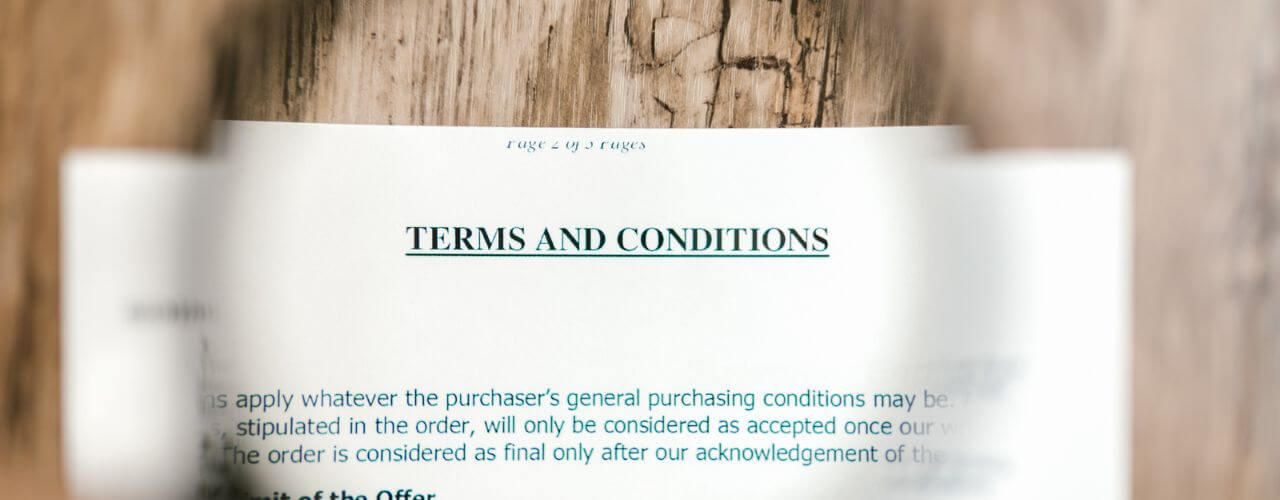
Table of Contents
Prenuptial Agreement Philippines (How to Avoid Conjugal Property in the Philippines)

A Prenuptial Agreement Philippines helps protect both you and your fiancée in case the marriage ends.
A Prenuptial Agreement correctly executed can help you:
- Keep property you own before the marriage even if the marriage ends
- Determine who gets what when the marriage ends through a court case such as Annulment in the Philippines.
Without a Prenuptial Agreement Philippines, anything that is Conjugal Property is split equally between the spouses.
For a Prenuptial Agreement to be valid, it must be executed before the marriage, signed by both parties and ideally registered.
Prenuptial Agreement Philippines Requirement 1: Must be executed before the Marriage

A Prenuptial Agreement in the Philippines must be executed before the marriage and signed by both parties.
Okay, here is the law:
Art. 77 The marriage settlements and any modification thereof shall be in writing, signed by the parties and executed before the celebration of the marriage.
A Marriage Settlement or Prenuptial Agreement Philippines that is executed after the marriage is not valid.
A kadulatan that you will each go your own way and have nothing to do with each other made after the marriage is also not valid.
Let me just emphasize that:
A Marriage Settlement or Prenuptial Agreement in the Philippines must be executed before the marriage. And a kasulatan executed after the marriage is also NOT VALID.
Prenuptial Agreement Philippines Requirement 2: Signed by both parties before the Marriage and notarized
Another requirement is that Prenuptial Agreement in the Philippines must be signed by both parties.

Both parties must sign the document, as otherwise, it is not valid.
So, you need to both agree.
This means that you have to discuss it and understand each other’s point of view.
The Marriage Settlement or Prenuptial Agreement Philippines protects both parties in case the marriage ends through Annulment and should be seen that way.
Also remember to notarize the document.
Prenuptial Agreement Philippines shall be registered so that 3rd parties are duly notified
A Prenuptial Agreement Philippines should be registered at the local civil register and in the concerned property registries so that 3rd parties are duly informed and can respect the marriage settlements. Art 77 Family Code of the Philippines
Let me explain through an example.

Say Phillip and Maria decide to get married.
After they sign the Marriage Certificate, the Marriage Certificate is then registered with the Local Civil Register.
The Marriage Settlement or Prenuptial Agreement Philippines should be submitted along with the Certificate of Marriage at the LCR.
This registers it and allows notice that there is a Prenuptial Agreement to be known publicly.
What if it is not registered?

In case it is not registered, it is still valid between the 2 of you and can be used in a case such as Annulment in the Philippines.
However –
Third parties are not expected to act with the knowledge that there is a different Conjugal Property Regime.
It is good practice to register the Prenuptial Agreement and you should do this if you can.
Prenuptial Agreement Philippines: Which Conjugal Property type should you choose?
A Prenuptial Agreement must state which type of Conjugal Property regime is chosen.

There are 4 Conjugal Property Regimes that you can choose from:
- Absolute Community
- Conjugal Partnership of Gains
- Complete Separation of Property
- Individualized Conjugal Property Regime
It’s important to understand what each Conjugal Property Regime is.
Each has a different effect and splits property differently when the marriage ends through a court case such as Annulment in the Philippines.
I have a very, very detailed post on Conjugal Property Philippines but I will detail this briefly below.
Absolute Community
Absolute Community of Property is the default Conjugal Property regime and was effective from Aug 3, 1988.

In Absolute Community, all of your individual properties before the marriage form part of Conjugal Property.
In Absolute Community, only property acquired through Donation or Inheritance after the marriage is not part of Conjugal Property. (Or personal items such as clothing. Jewelry however is part of Conjugal Property.)
When you go through an Annulment in the Philippines, all Conjugal Property is divided between you.
A Prenuptial Agreement is not needed if you choose this Conjugal Property Regime.
Conjugal Partnership of Gains
A Conjugal Partnership of Gains can be chosen as your marriage regime. It was in the default Conjugal Property regime before Aug 3, 1988.

There are several differences:
- The property you own before the marriage remains yours and is not part of Conjugal Property.
- Conjugal Property is all the things earned during the marriage.
- When the marriage ends through a court case like Annulment in the Philippines, only the things that were earned during the marriage are divided between you.
This is a big difference.
You can consider this Conjugal Property regime if you wish to create a Prenuptial Agreement.
Complete Separation of Property

Complete Separation of property is exactly what it says it is – what is mine is mine and what is yours is yours.
If you file an Annulment in the Philippines and this is your Conjugal Property regime, then you still own everything that you made or owned before the marriage.
This is also a good choice for your Prenuptial Agreement.
Personalized Conjugal Property Regime

The law provides for a 4th option which is essentially a Personalized Conjugal Property Regime.
These can be more complicated.
It should not go against “law, morals, good customs, public order or public policy.”
For this type of Agreement, it might be best to get a lawyer so that it is drafted properly.
Prenuptial Agreement Philippines: What else should I include aside from the Conjugal Property Regime?

It is generally a good idea for a Prenuptial Agreement to include a list of properties.
The list of properties can determine in detail what the Prenuptial Agreement should be applied to, and should be detailed.
This list should also be updated every so often to include all the property obtained during the marriage.
What happens to Foreign Assets in a Prenuptial Agreement?

Foreign assets are usually governed by the law of the foreign country that they are located.
A Prenuptial Agreement Philippines may not cover assets abroad.
It is best to work with a lawyer from the Philippines and the other countries involved if there are assets in other countries.
Prenuptial Agreement Philippines: What if one of the future spouses is a Foreigner?

A foreigner and a Filipina can also enter into a Prenuptial Agreement in the Philippines.
So long as it is validly executed
Who should get a Prenuptial Agreement?

A Prenuptial Agreement should be entered into for the below reasons:
- When one party has more debt than the other.
- When one party has a lot more assets than the other.
- When they own businesses
- When there are children from a previous relationship
- For any other reason.

We’ve often seen marriages end.
Because of property issues, court cases can drag on longer and there are a lot of acrimonies.
This helps make the process easier and can protect other people such as children from a previous marriage or co-owners in a family business who may be affected by an angry ex-spouse.
Can I make a Prenuptial Agreement myself?

Yes, you can, if you so wish.
Make sure that it is executed before the marriage, is signed by both parties and is notarized. Remember registration.
I do think that it is always best to consult a lawyer because this contract has a really big effect on your future.
It is best to spend now on this.
Do the Marriage Settlement or Prenuptial Agreement right so that a lot of problems can be avoided.
You will both be grateful for it if the marriage ends through a court case such as Annulment in the Philippines.
How much can Prenuptial Agreement cost?

A Prenuptial Agreement’s cost will consist of notarization, registration and lawyer’s fees.
Consider a few thousand – say about 2,000 – for registration.
Also, consider that there will be lawyer’s fees.
Get a lawyer for when there is a large number of assets or a complicated Prenuptial Agreement desired.
It will save you a lot of time and trouble in the long run.

